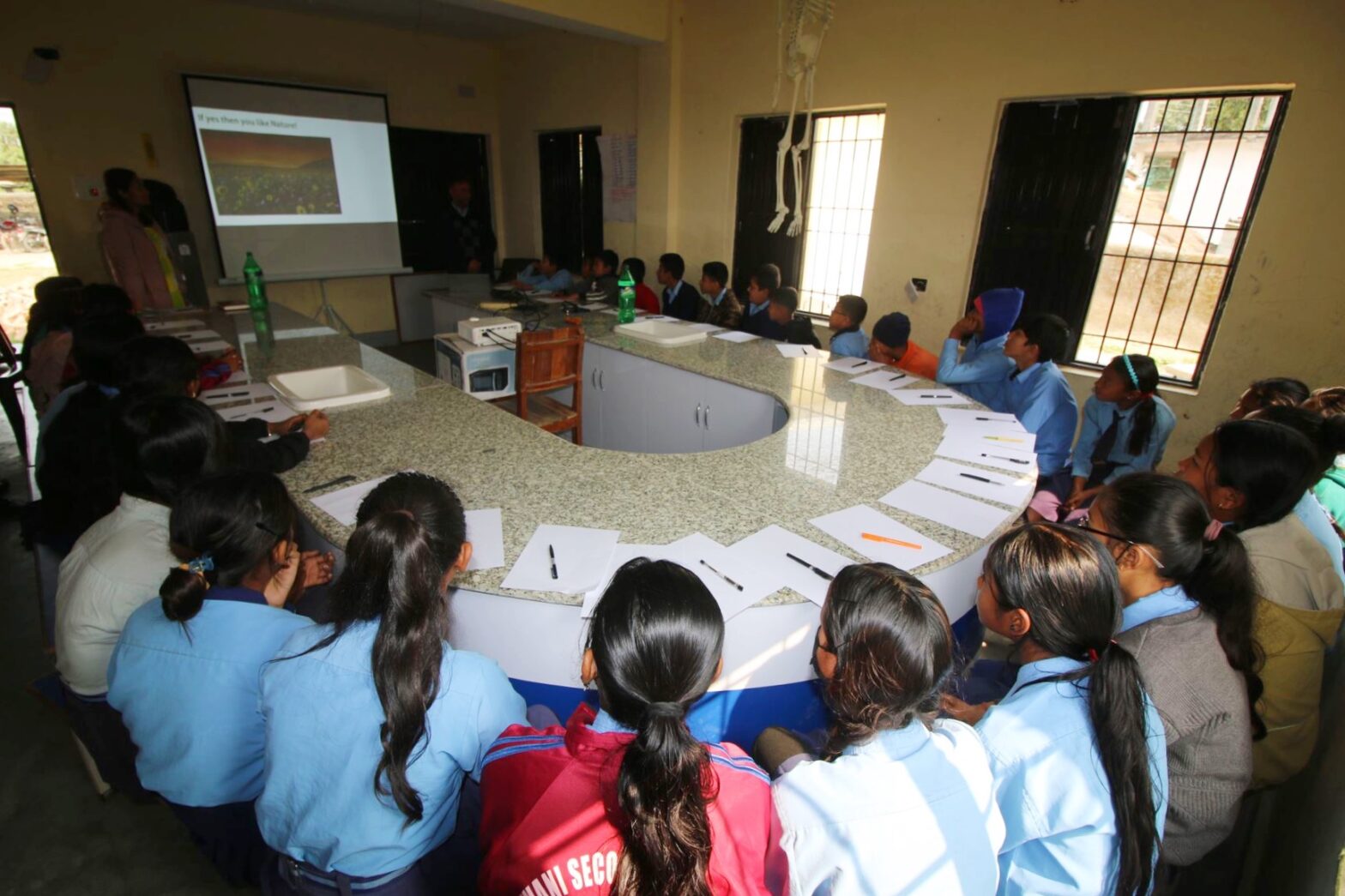In the face of an ever-accelerating crisis, the phenomenon of global climate change has emerged as a formidable force, reshaping the very fabric of our planet. From the vanishing glaciers to the intensifying storms, the pervasive influence of this environmental metamorphosis extends beyond geographical boundaries, ushering in a new era of uncertainty and profound consequences for all life forms on Earth. As we delve into the depths of this complex issue, we unravel the interconnected web of global changes and their far-reaching effects that demand our immediate attention and collective action.
Nestled amidst the awe-inspiring Himalayas, Nepal stands as a poignant testament to the tangible impact of global climate change, as the nation grapples with melting glaciers, erratic monsoons, and rising temperatures, echoing the urgent need for international cooperation and sustainable solutions.
In 2018, the Government of Nepal introduced the “Green School Directive”, which encourages schools to adopt eco-friendly practices. By fostering a nurturing environment for knowledge and change, schools possess a unique and influential platform to empower the next generation, enabling them to become active participants in climate action and guardians of a sustainable future.
To support the Government on its commitment to “Green School” Street Child of Nepal and Wildlife Conservation Nepal (WCN) have partnered to work closely with 50 schools in Ratnanagar municipality in Chitwan District of Bagmati Province in Nepal. The aim is to consolidate all environmental education programs into a comprehensive model. This initiative aligns with the Green School guidelines directed by the central government. The primary objective is to introduce the concept to the local municipality, local government officials and elected officials and provide them with training and capacity building. The goal is for the Municipality to embrace and adopt this program as its own, marking a significant milestone as Nepal incorporates the idea of Green School into its education system.
Shambhu Hari Dhakal, a science teacher at Shree Jhuwani Secondary School, is leading by example in promoting environmental sustainability. Dhakal, who also coordinates the eco club, is spearheading efforts to make his school eco-friendlier and actively involving students in various initiatives. Through the Green School Project, Shree Jhuwani Secondary School in Ratnanagar Chitwan is setting an example as a model green school.
Other participating schools have also taken proactive measures, such as establishing eco-clubs, implementing eco-friendly initiatives, and transforming their gardens into green spaces where students learn about organic farming. Students and eco-club members from these schools are actively raising awareness about environmental issues beyond school boundaries, spreading their knowledge to the wider community. The project has provided teacher training, advocated for integrating environmental education into the curriculum, and facilitated the formation of eco clubs.
An excellent example of these efforts can be seen at Lyceum International Model School, where they have created a wall garden with various flowers. Additionally, the school committee has plans to develop a productive school garden where students will learn about gardening and cultivate their own fruits and vegetables. This hands-on experience will educate students about sustainable practices and the importance of growing their own food.
These initiatives are crucial steps toward creating a greener and more sustainable future within schools in Nepal. By integrating environmental education into schools and empowering students to take an active role, the concept of Green School is gradually becoming ingrained in the education system, paving the way for a more environmentally conscious society.
In conclusion, the significance of engaging with schools and children in promoting climate action cannot be overstated. By instilling a sense of environmental stewardship and fostering a deep understanding of the urgency surrounding climate change, the project attempts to equip the younger generation with the tools and motivation to become catalysts of positive change. Through education, awareness campaigns, and hands-on initiatives, schools can nurture a generation that embraces sustainability, advocates for renewable energy, practices responsible consumption, and embraces innovative solutions to combat climate change. As these young minds grow and take their place in the world, their collective efforts hold the potential to shape policies, drive technological advancements, and inspire global cooperation towards a resilient and habitable planet. The project aims to harness the power of education and empower our children to be the guardians of our planet’s future, ensuring that the fight against climate change becomes an unwavering priority for generations to come.

